This has been a month where I needed to love things again. It comes around ever so often, when I get bogged down and need a breather from the world and dive hard into everything that makes me happy. The goal of this newsletter, I guess, is a little overview of what I jumped into. I’ll leave out music, because that would take way too long, and focus on books and movies from the last few weeks.
So here we go.
I read one book for work I absolutely loved, Dorothy B. Hughes’ The Fallen Sparrow, an odd thriller full of spies, grudges, and murder that I cannot recommend enough. I picked up Daisuke Shen’s Vague Predictions and Prophecies, a book that was truly strange in the best way, that shocked me on every page, that actually gave me nightmares. (That’s about the highest compliment I can give.) I read the brilliant Emmalea Russo’s mysterious Vivienne, a book filled with so many lovely sentences it felt like a feast. The novel takes art and transcendence seriously, and it seems to have a deep love for all its people, and the more flawed the better. I read Michael Bible’s gorgeous Little Lazarus, maybe my favorite book of the year, which I will write much more about later, Lord willing.
I dove into some old favorites as well. After having a beer with my friend Devin, I reread Larry Levis’ luminous Elegy, a book I’ve loved since I first encountered it twenty years ago. The poems read like the most delicate tales, spider-silk in every line, but they hit like a sledgehammer. (This one might be my favorite.) I reread the master Basho’s classic The Narrow Road to the Interior and wondered why every book isn’t like this one, a road book with prose perfect and swift, pausing only long enough to deliver the best inch-long poem you’ve ever read in your life. That one fixed a burnt-out spot in my soul, much needed.
On recommendation of my neighbor Old Man Steve, I read The Battle for Stalingrad by Vasily Chuikov a military history so pummeling I had to take breaks to go sit outside for a while. I read Marcel Schwob’s The Children’s Crusade, which seemed to indict everything in existence, from the pope to the children to God, while also giving them all grace in the process. Kind of an amazing feat, really.
I saw a few new movies in the theatres, Megalopolis and The Substance, both of which I had way more fun talking to people about afterwards than I did actually watching them. With my friend Annabel I checked out The Outrun, based on a book I’ve never read. While it wasn’t quite a great movie, Saoirse Ronan was fantastic, as she always is, and the movie had a real heart. It did the thing where it had real people in it, and I loved them, and more than anything I wanted everyone to be okay. It seemed unique in the recovery movie category, as it was less about “you have to stop doing this to yourself” and more about “you have to stop doing this to the people you love.” As the character Rona says herself, “I can’t be happy sober,” a line that broke my heart. Well, it’s okay, nobody’s really that happy anyway. Right? Maybe?
I was very moved by the film’s depiction of AA as a place where a person can be fully themselves, without judgement, because no one can judge you more than you’ve already judged yourself. Also, of course and always, none of us are innocent. It’s the people that show up to the meetings who are brave enough to own up to that fact. I know AA doesn’t work for everybody, but it seemed a truly honest place in this film. I wish we all had somewhere like that.
I was absolutely floored by two older movies. The first was Pasolini’s take on Medea, starring Maria Callas, one of my all-time loves. The film feels beamed in from another world. I mean that. I’ve never seen a movie that felt so truly alien in my life: the costumes, the rituals, the tranced-out music, the blood sacrifice. (The closest movie I can think to compare it to is Andrzej Żuławski’s On the Silver Globe, which also seems hatched out of an egg from a foreign star.) The way Pasolini stops to tell us about the nature of belief, the way what is possible for you changes. I was truly disturbed by this one, and also enraptured by the beauty of it. And damn, again, Maria Callas. What a remarkable presence. She’s so beautiful and imposing and inscrutable that every scene takes on this ritualistic gravitas, holy mystery after holy mystery. Pasolini is one of my very favorite directors, and this one refused to let me go. A week later it’s still popping up in my dreams.
The other night I was sitting at my local bar, just the bartender, my neighbor Old Man Steve, and me. Steve asked us if we wanted to watch Slap Shot. Hell yes, we wanted to watch Slap Shot. I always want to watch Slap Shot. It’s my pick for best sports movie of all time. It’s so funny, sure, and it looks fantastic, grimy, gritty, with a silver-toothed Paul Newman grinning and gawking the whole time. Slap Shot also shows how an entire movie can turn on two scenes. One, with Paul Newman and Anita, the real owner of the hockey team. It’s the first time Newman’s grin falters, and we see the true horror of his coming joblessness, the death of the dream. It’s a deeply cynical scene, and cruel. It’s also where the movie shows you really where its heart lies, and it’s sure as hell not with the wealthy of the world. And that climactic scene with Michael Ontkean on the ice, showing us once and for all that gender/sexual cruelty in the film, Nancy Dowd’s script knows exactly what it’s doing, what the hypermasculine players fear most, and where the true way forward might lie.
Both movies also remind you how really the great joy of movies is looking at people’s faces. Paul Newman’s smile can turn a hovel into a palace, and Maria Callas can tell you the story of the world in one fierce-eyed closeup. One look at them and you know all you need to know. The best movies know this, and they allow us time to drink long and deep. Give me the actors with a life behind their faces that proves every smirk and scowl true. Let the lines show their suffering and their happiness too. Charisma, gravitas, star power…whatever you want to call it. Those things are deepened by a life lived, happy or tragic. The best movies let themselves delight in this, and the audience as well. My two cents, anyway.
Another thing, briefly: I did a reading with some friends the other night. It was in ersatz Irish pub, well-attended, and filled with old pals. The atmosphere was jovial, freewheeling a little bit. I was just so happy to be there. I read an old story that wasn’t very good. I did it on purpose, because I like the story, though I understand it’s nowhere near the best I can do (and that isn’t necessarily saying much). I just wanted to read it, because it makes me happy. In that way, it felt like readings we used to do twenty years ago, when no one showed up and nobody had agents or book deals and the whole point was just to thrill your friends. I loved those readings. I wish they were all like that.
Take care everybody, and may mercy find you, whether you deserve it or not.
Cheers,


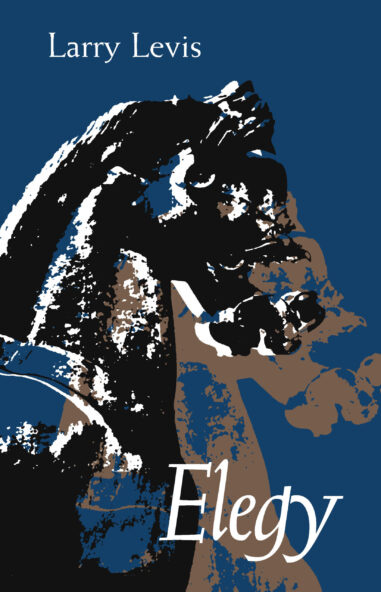
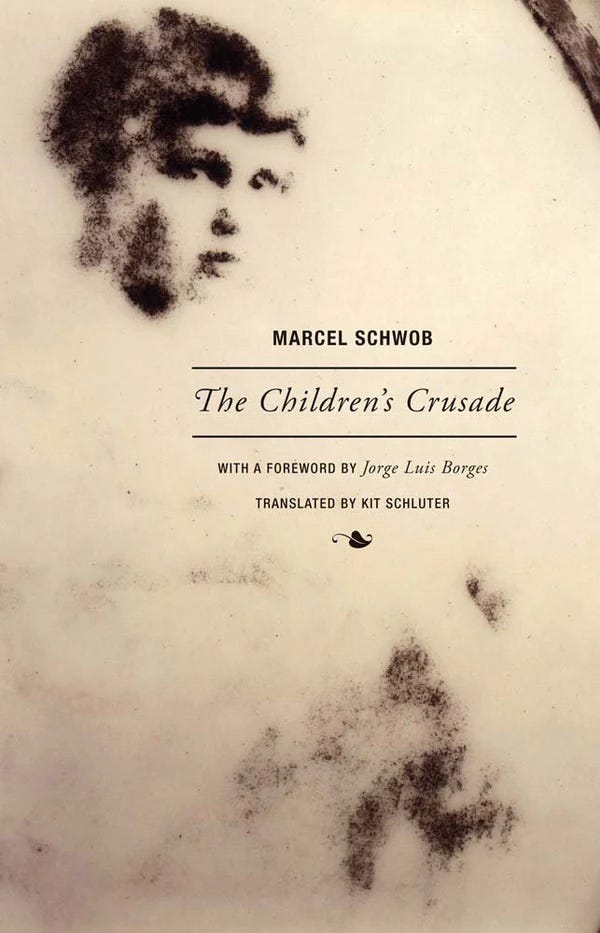
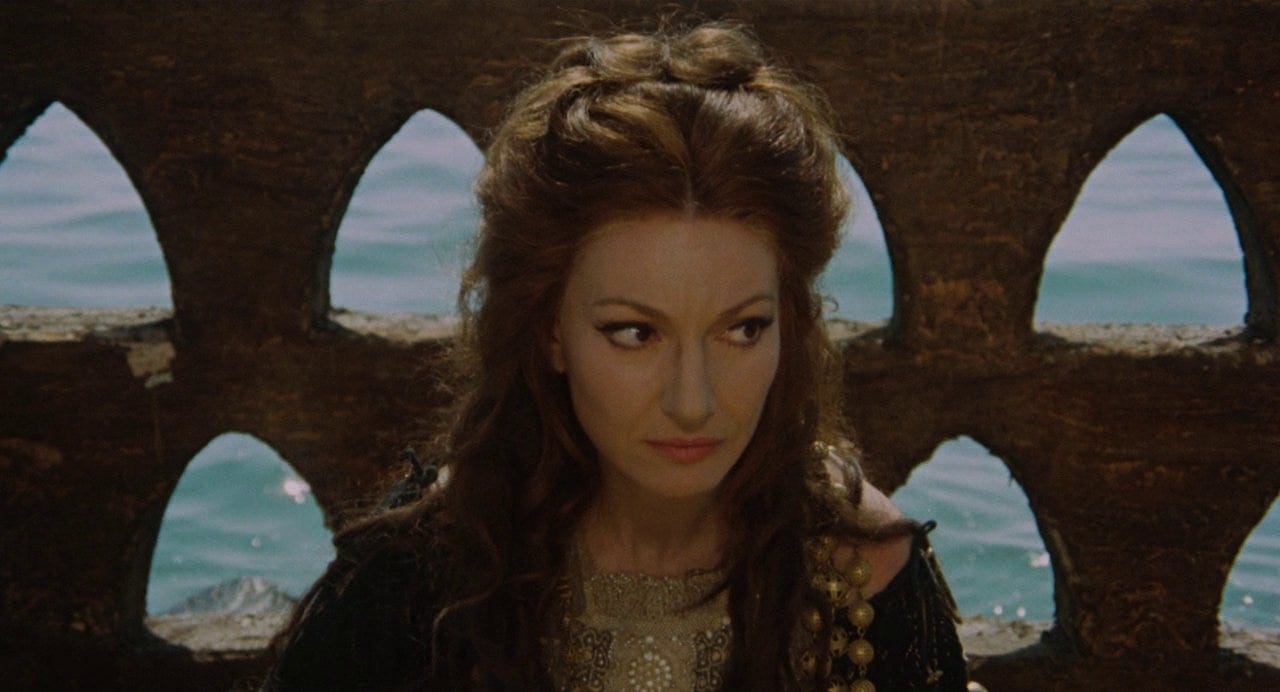
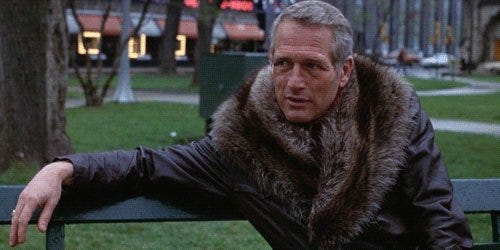
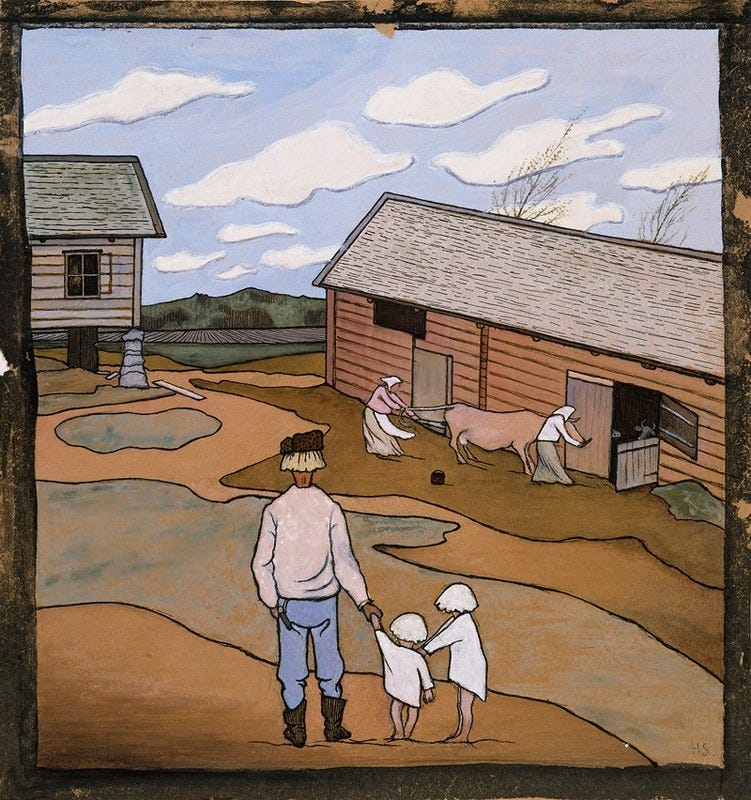
Really enjoyed this one! Thanks for mentioning Pasolini--gonna check out Medea.
You have been busy. Impressive. Me? Not so much.